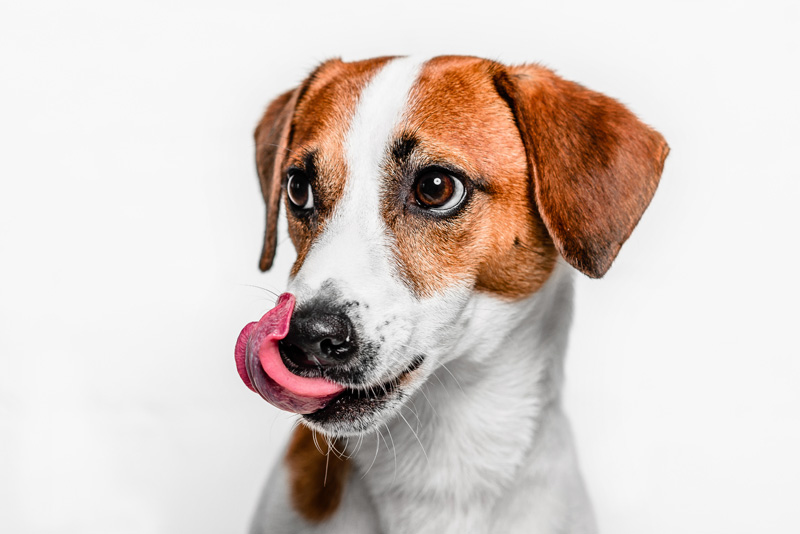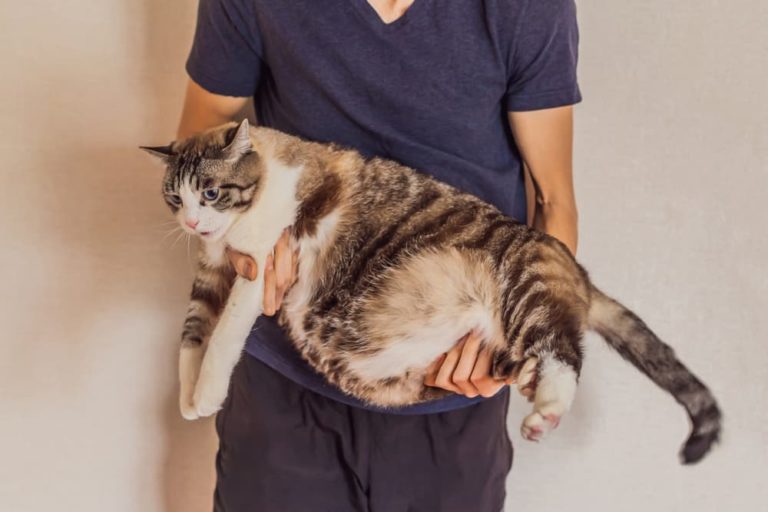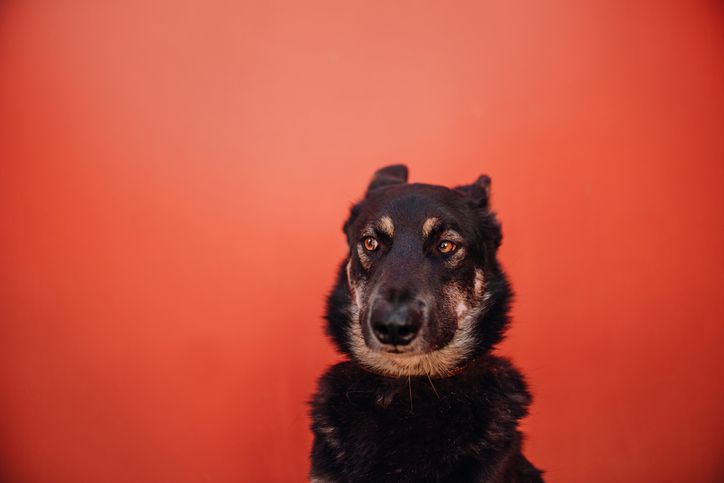Dog lip-licking is a canine body language that signifies stress or anxiety. Understanding lip-licking can help pet owners communicate better with their dogs.
Our dog’s body language is crucial to understanding and communicating with furry friends. One typical behavior that dog owners should pay attention to is lip-licking. While it may seem harmless, lip-licking is a form of canine communication that can indicate stress or anxiety in dogs.
By being aware of this behavior and its significance, pet owners can better understand their dogs’ emotions and take appropriate action to ensure their well-being. We will explore the meaning behind lip-licking in dogs and how it can be interpreted in different situations. So, let’s delve into dog body language and decipher the messages conveyed through lip-licking.

Interpreting Lip Licking In Dogs
Dogs communicate through various forms of body language, and one of these behaviors is lip-licking. Dog owners and enthusiasts need to understand the meaning behind this behavior, as it can provide valuable insights into a dog’s emotions and intentions. By observing and interpreting lip-licking in dogs, you can better understand what they’re trying to convey. This article will explore the common reasons for lip-licking and its contextual meanings.
Common Reasons For Lip Licking
When dogs lick their lips, it is not always a sign of hunger or thirst. Lip-licking can have several meanings, and it’s essential to consider the context in which it occurs.
- Anxiety or Stress: Dogs may lick their lips when feeling uneasy or stressed, indicating discomfort or a need for reassurance.
- Submission: Lip-licking can be a submissive gesture, especially when combined with a lowered head or body posture.
- Redirected Attention: Dogs may lick their lips when they cannot directly confront the source of their frustration or excitement, turning their energy through this behavior.
- Anticipation: Lip licking can also signify anticipation, such as when a dog is expecting a treat or mealtime.
Contextual Meanings Of Lip Licking
The meaning of lip-licking in dogs can vary depending on the situation and surrounding cues. Here are some contextual interpretations to keep in mind:
| Situation | Interpretation |
|---|---|
| Avoidance of Conflict | Lip-licking can serve as a signal to defuse tension and avoid confrontation. It is often seen when dogs want to prevent escalation. |
| Medical Issues | Excessive lip-licking can sometimes indicate discomfort or pain due to underlying medical conditions. It is essential to consult a veterinarian to rule out any health issues. |
| Social Interaction | During social interactions, lip-licking can be a way for dogs to communicate their intentions, such as signaling friendliness or submission to other dogs or humans. |
| Food Aggression | Lip-licking and other signs of tension, like growling or stiff body language, can be warning signs of food-related aggression. |
To interpret a dog’s message accurately, it’s essential to consider the overall body language, context, other accompanying behaviors, and lip-licking.
Understanding and interpreting lip-licking in dogs can enhance your ability to communicate and interact effectively with your furry companion, promoting a happier and more harmonious relationship.

Tips For Responding To Lip Licking
Improve your understanding of dog body language by learning how to respond to lip licking. Discover tips to interpret this behavior and ensure a positive interaction with your furry friend.
Creating A Calming Environment
When you notice your dog engaging in lip-licking, it is essential to create a calming environment to address their discomfort or anxiety. Here are some tips to help you achieve this:
Avoid direct eye contact: Dogs can interpret direct eye contact as a threat or a challenge. Instead, try to look at your dog indirectly to help them feel more at ease.
Give them space. If your dog displays lip-licking behavior, it’s best to give them space. Crowding them may increase their stress levels and escalate the situation.
Provide a safe retreat. Dogs often seek a safe space when they feel overwhelmed. Make sure your dog has access to a quiet and comfortable area where they can relax and feel secure.
Professional Training And Behavior Modification
If your dog’s lip-licking persists and is causing significant distress, it may be beneficial to seek professional assistance. Consider the following options:
Consult a professional trainer. A certified dog trainer can help assess your dog’s behavior and create a tailored training plan. They can provide guidance on how to address lip-licking and other related issues.
Work with a behaviorist: In more severe cases, consulting a professional behaviorist may be necessary. Behaviorists have advanced knowledge and experience working with complex behavior issues and can develop a customized behavior modification program for your dog.
Consider positive reinforcement techniques: Many professional trainers and behaviorists utilize positive reinforcement techniques to modify unwanted behaviors. This approach focuses on rewarding desired behaviors, which can help reduce lip-licking and improve overall behavior.
:strip_icc()/dog-body-language-lip-licking-1118243-FINAL-0419042ba7ca44c5870b2a8d05f78f51.png)
Frequently Asked Questions For Dog Body Language: Lip Licking
Why Do Dogs Lick Their Lips?
Dogs lick their lips as a way to communicate anxiety or stress. It can also indicate anticipation, as dogs often lick their lips before receiving a treat or during mealtime. Lip-licking can also be a calming signal used to defuse a potentitense situation.
Is Lip Licking A Sign Of Aggression In Dogs?
Lip-licking can be a sign of anxiety or nervousness in dogs, but it is not usually a sign of aggression. Dogs may lick their lips to communicate discomfort in certain situations, such as when they feel threatened or overwhelmed.
Looking for other body language cues is essential to accurately interpret a dog’s behavior.
How Can I Help My Dog If They Are Constantly Licking Their Lips?
If your dog is excessively licking their lips, it is essential to identify the underlying cause. It could be due to stress, anxiety, or a medical issue. Consult with a veterinarian to rule out any potential health problems. Additionally, providing your dog with a calm and supportive environment can help alleviate their stress and reduce lip-licking behavior.
Conclusion
To sum it up, understanding a dog’s body language, such as lip licking, is crucial for effective communication and building a strong bond with our furry companions. By recognizing this behavior and considering the context, we can better respond to our dogs’ needs and ensure their well-being.
So, the next time you notice your dog licking their lips, remember to assess the situation and provide them with the appropriate support and care.


